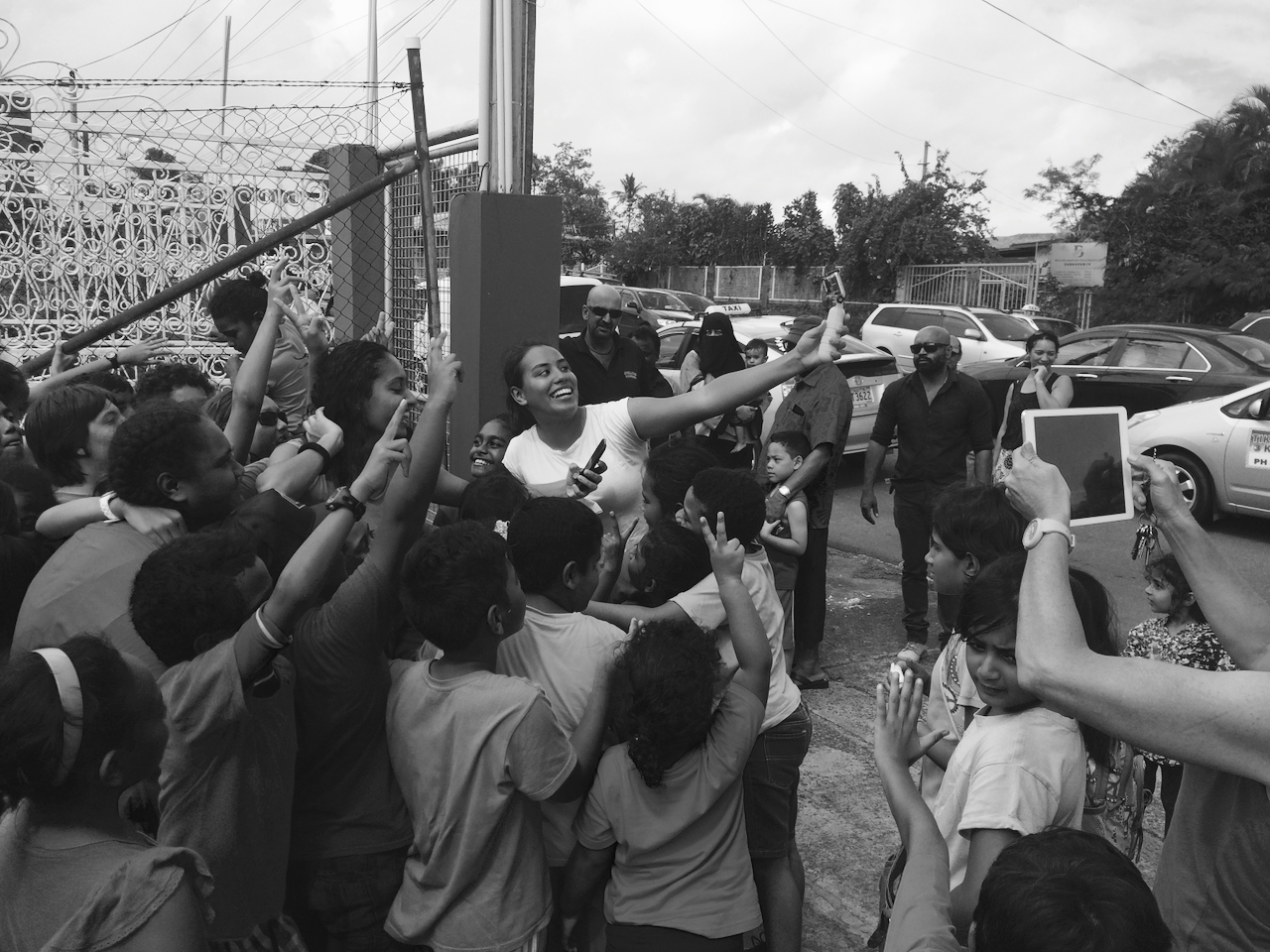Frequently Asked Questions by Parents
Admin
Why are there no discounts for large families?
We put the same effort into the education of every child, regardless of whether they come from the same family. Being in the same family does not reduce the effort in teaching them. We do however offer an early payment discount.
Why is there no pro-rata rate for tution fees?
We charge on a per term basis. If your child spends 1 day in the term or the whole term with us, the fees are the same.
Do we have to pay a Term fee if we are away for one of the Terms in the year?
No, but …
… some parents have jobs or events, or opportunities that take them away for a term. If you do take your child out for the term and do not pay for the term fee, then there is a chance that the space for your child will be given to another incoming student, and then depending on the class size, when you return from the trip, there might be no space to come back into on your return. The only way to guarantee the space, is to pay for the term.
Having said that, we are set up to continue doing our instruction online with children who are absent. These would be online activities, and video calls with the whole class a few times a week. We have also helped set up individual projects that students can do if they are away, perhaps in another country, that is relevant to their studies at MIS.
Why is religious jewellery not allowed?
If the religious jewellery poses no threat to a child’s safety during physical activities, then it is not banned. All jewellery that could snag somewhere is banned regardless of whether it is a part of a religious attire or purely for fasion. In practice this means no necklaces, no wrist bands and no hooped ear rings or nose rings.
Can I try another school and if my child doesn’t like it, can we return?
No!
Old students are always welcome back to school to visit and say ‘Bula!’ and even take part in activities, but they cannot come back as a full time student. If a student leaves us because of work postings by the parents, then this is not an issue and the child can return back to MIS if the parents return to Suva due to work.
What is the procedure during a natural disaster?
As far as we are concerned, your child is ‘our child’ until you are able to pick them up. We urge parents to not rush, or put themselves in danger. We treat our students like family. We choose all the locations we’ve been at, specifically to have strong resistance to natural disasters. So if needs be we can actually accommodate not just our students but even some of the associated family’s if their own homes are at risk during the episode.
Why is there no Parent Teachers Association?
We have not found them useful in other schools we’ve been previously associated with. We urge parents though to take part in the Parent Activities that occur 3 times a year.
This is a good way of getting to know both other parents and also MIS staff members, in a fun activity.
Why do we have to sign a waiver form?
This is a standard practice especially overseas. There is a generic waiver form that is relevant to taking your child to places in the greater Suva area during the academic year.
There is also specific waiver forms given when trips are made outside of the greater Suva area.
If you have concerns about the waiver forms please take independent legal advice, but we are more than happyt to explain how you still have rights to hold us accountable if we have not taken reasonable steps to ensure that an activity is safe for your child.
Education
Can my child go to a good university?
Well if they study hard enough they can! We offer a leaving certificate that is very similar to the one that the New Zealand Qualitifications Authority (NZQA) offers. The leaving certificate has a complete transcript the relevant years of education in years 11, 12 & 13. Our students have entered into foundation programmes here in Fiji and university degree programmes in Australia and the United Kingdom.
Why do students have to go swimming?
We do not teach competitive swimming. Our swimming programme is about survival swimming. Since Fiji exists somewhere close to the middle of the largest ocean in the world, it seems sensible that our students can not be afraid of oceans and rivers, but nevertheless learn to respect them and take the potential to get out of trouble, seriously. Similarly we teach our students about road safety actively from Class 4 onwards.
Will my child take exams?
Yes.
But perhaps not quite in the way that some expect. Assessment is continuous, and then without any build up we can often do a ’summative’ assessment (aka ‘an exam’) so there’s no preparation, and we explain how we want just to use the assessment as a tool to find out where there are ‘holes’ in understanding. This way we hope to take away the fear of doing ‘exams’. There are formal examinations in the last three years of senior school which is set and vetted by external examiners and which follows a similar format to the New Zealand ’external’ examinations of the New Zealand National Certficate of Educational Achievement (NCEA).
Can parents attend the field trips, especially when the children stay away overnight?
No.
We find that the educational aims are not possible to achieve when there is a parent present. The purpose of the extended field trips is to learn to become more independent and responsible for their contributions to the team effort whilst on the field trip.
Isn’t a progressive school just an big experiment?
The vast majority of the ‘progressive’ side of our education is actually backed up by scientific rationale and evidence that it works. Many elements of what we do at MIS are recognised and used in Montessori and Waldorf-Steiner education systems and they have been going successfully for about 100 years.
Why do classes stop at 1pm?
The face to face instructions stop at 1pm, we find that since our breaks are relatively short compared to Fiji’s public schools, our face to face instruction contact hours are the same as the children that go to school from 8:30am - 3pm.
In addition it is fully expected that students have a minimum of work to do from home which ranges from 20 minutes to 2 hours a day depending on which class/Pod the student is in. There is a lot of support work and assessments in the digital workspace and manytime there will be at least one class a week that is conducted over a virtual classroom.

About MIS
Why do students address their teachers by their first names?
Some parents are suprirsed that all our students address the staff by their first name. And we do not mean with a title such as 'Miss Sally’, but rather just ’Sally’. We are quite deliberate about this as we feel strongly that ‘respect’ is something that is not automatically awarded, but rather should be earned. We want to teach our students that, and therefore we are all on first name terms. Some parents are incredulous that we are able to maintain discipline, but actually it makes it far eaier to do this because we appeal to a student’s inherrent good nature and ask that if the staff are behaviour respectuflly to them, then why wouldn’t they want to be respectful back.
Why do some parents leave MIS?
There two main reasons:
(I) They feel that MIS does not work the students ‘hard’ enough. Our focus is more on students learning to work ’smart’.
(II) They feel that MIS is not large enough and therefore it cannot offer their child a good network of future contacts. All we can say to that is that we find that actually smaller class sizes appear to have created strong bonded school comrades.
What motivates us to have created and run MIS?
The founders saw a need to move beyond an outdated educational system rooted in colonial traditions, which emphasises rote learning and prepares children for rigid roles and hierarchical structures ill-suited to the 21st century. This traditional model acts as a barrier to fostering true understanding and adaptability in a rapidly changing world.
Inspired by Howard Gardner’s Multiple Intelligence Theory, the aim of MIS is to provide an education that recognises and nurtures a broader range of abilities in every child. By designing curricula that connect learning to real-world challenges, and assessments that reflect meaningful skills, they strive to ensure students leave school not just academically capable but prepared to thrive in the ever-changing world of the 21st century.
Why is there no Principal?
We have three co-Directors all with the same authority. Each of the co-Directors has been chosen to have slightly different strengths required for a good rounded leadership strata.
You have a 100 Year Plan?
Yes!
It’s not detailed by design because we have already stated that the future is going to be unpredictable and changing fast.
However, our intent was that MIS would still be operational in 2108. We wanted the great grandchildren of the founders to have the same quality of education, or hopefully even better, 100 years from our establishment. When MIS gets there then it is time to evaluate again whether we are still relevant. We have not found many start ups or organsations that have a vision this far into the future, but in honesty, it has been exciting to think this way.

Fiji Ministry of Education registration number SF: 8239